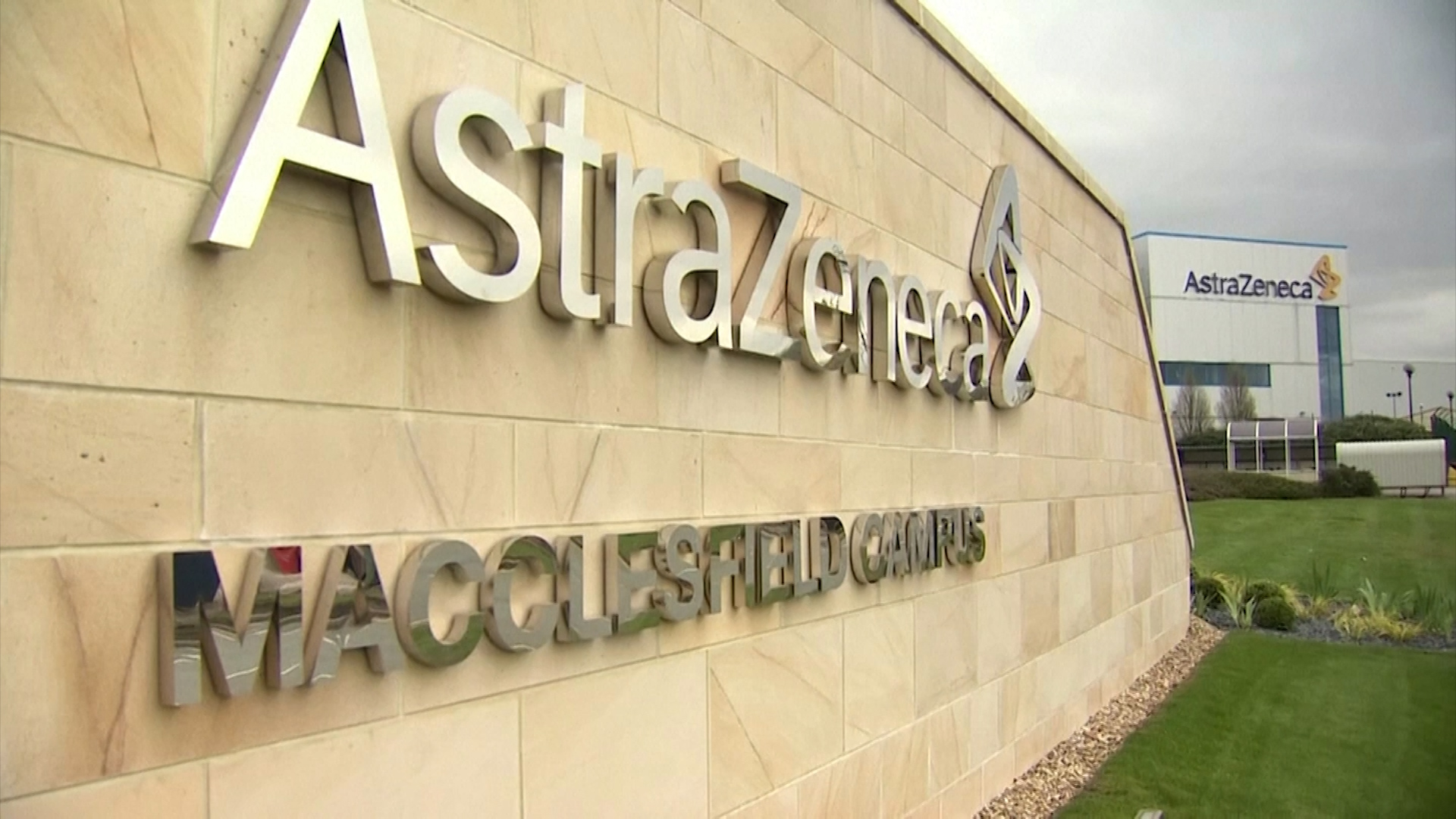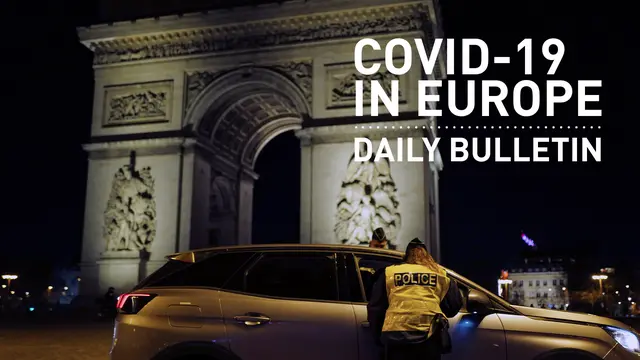TOP HEADLINES
-
France is to deploy 100,000 police officers across the country as it looks to clamp down on New Year's Eve gatherings on Thursday evening.
-
Germany's Chancellor Angela Merkel said 2020 was by far the most difficult 12 months of her 15-year tenure , but that the start of vaccinations made 2021 a year of hope.
-
The UK military is ready to help at Nightingale hospitals if the healthcare system becomes overwhelmed , the country's defense secretary, Ben Wallace, said.
-** The EU's drug regulator, the European Medicines Agency, reiterated it's unlikely the watchdog will approve the AstraZeneca vaccine in the next month,** despite the jab receiving approval in the UK.
-
The Netherlands is to continue with its plan to start vaccinations by January 8 , despite other EU countries beginning inoculations this week, the country's Health Minister Hugo de Jong said.
-
**Ireland has extended its ban on travel from the UK and South Africa until January 6 **amid a surge in infections of new variants of the virus.
-
France has reported a further 26,457 new infections in the past 24 hours, more than double the 11,395 new cases recorded the previous day and the highest daily figure since November 18.
-
**France's European affairs minister, Clement Beaune, has said the country's vaccination program will not fail **after it came under fire for the slow start of its roll-out compared with other EU nations.
-
Czechia reported a further 16,939 new cases in the past 24 hours, the highest daily total recorded since the start of the pandemic.
-
**Slovakia has reported 6,315 new cases in the past 24 hours, **the highest daily number so far, the government said.
**CLICK: **
THE PEOPLE MAKING A DIFFERENCE IN A YEAR OF CRISIS
ACROSS EUROPE
Catherine Drew in the UK
Around 20 million more people are waking up in England under the tightest Tier 4 restrictions this New Year's Eve after the government dramatically applied the measures to swathes of the country on Wednesday.
This means large parts of England are now in the top tier, with all non-essential shops closed and people told to stay at home. "COVID loves a crowd," according to Stephen Powis, the head of NHS England, who told people to celebrate the new year within households. "Leave the parties for later in the year," he urged.
Scotland's First Minister Nicola Sturgeon echoed these remarks, urging Scots not to leave their homes for celebrations.
This comes as the new variant of the coronavirus continues to spread rapidly across the UK, with more than 50,000 new infections reported on Wednesday and 981 deaths.
Meanwhile, schools and parents are digesting a statement from Education Secretary Gavin Williamson on Wednesday, who saidmost children of 11 years and older will return later than planned, with schools charged to carry out mass testing of pupils and staff. Primary schools for younger children are to open, however those in some of the areas with high rates of infection will have a delayed start to the term, apart from the children of key workers.
France
France's government is to deploy 100,000 police and gendarmes across the country on Thursday evening in a bid to deter large New Year's Eve celebrations.
Two hundred Paris Metro stations will also close at 9 p.m. local time, with people requiring a declaration explaining why they need to be out past the 8 p.m. curfew enforced by the government to stop the spread of the virus.
While it is not illegal to invite friends and family to your home, people are recommended to limit gatherings to a maximum of six adults.
Meanwhile, the country's vaccination program will not fail, despite coming under fire for its slow roll-out compared to other EU countries, its European affairs minister, Clement Beaune, said.
France has reported a further 26,457 new infections in the past 24 hours, more than double the 11,395 new cases recorded the previous day, and the highest daily figure since November 18.
France is to deploy 100,000 police officers across the country as it looks to clamp down on New Year's Eve gatherings on Thursday evening. /AFP
Linda Kennedy in Budapest
More vaccination centers for health workers have been set up in Hungary, after a further 70,000 doses of the Pfizer/BioNTech vaccine arrived in the country. Twenty one vaccination points are now set to administer the jabs to 35,000 more front-line workers, including emergency care center staff and workers in intensive care units. The new doses will allow GPs to be among those in line for a vaccination.
Asked about the Russian vaccine Sputnik V at the daily coronavirus briefing, the national chief medical officer, Cecilia Muller, said the 6,000 doses that arrived in Hungary open up "space for us to possibly make another vaccine available to the public, and we have started research and collaboration with the Russian side."
Some 600,000 people have now registered for vaccinations in Hungary – 462,000 people registered online, and 136,000 retired people registered by post.
02:57

FROM OUR GLOBAL COLLEAGUES
CGTN Europe special:
The Alps - Timeless and changing
CGTN China:
China approves conditional listing of homegrown COVID-19 vaccine
CGTN America:
Canada to introduce COVID-19 test rule for international travel
CGTN Africa:
Kenyan doctors who have since died of COVID-19
Sign up
here
to get the COVID-19 Europe bulletin sent directly to your inbox.
CGTN Europe has been providing in-depth coverage of the novel coronavirus story as it has unfolded.
Here
you can read the essential information about the crisis.
 简体中文
简体中文

